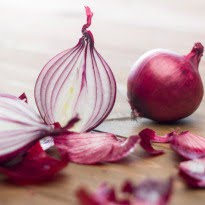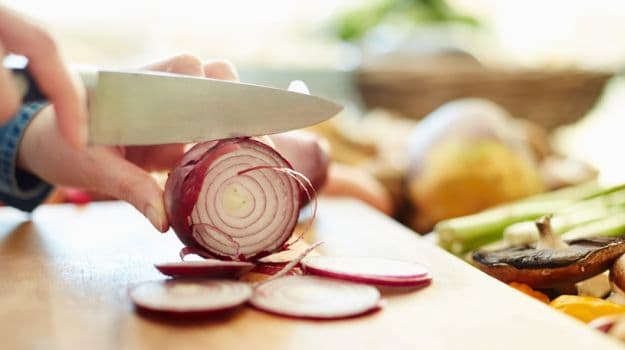
I was born in Delhi and spent most of my childhood here. It was only in college that I left for Ahmedabad and later worked for a few years in Mumbai. As a food enthusiast, I realised early on in life that there is so much variety in India, that you can spend a lifetime sampling it and yet not end up trying everything. Every state, or rather each district, has its own unique cuisine, love for certain ingredients and traditions around food. The one thing that I noticed most when I moved from Delhi to West India, was the absence of onions on my thali, in Maharashtra, Gujarat or even further south like Karnataka and Kerala. There was the odd chopped ‘kaanda’ alongside pav bhaji, but that was a rarity with other dishes. Onions are a staple in parts of North India – Punjab, Haryana, UP, Rajasthan, etc. No meal is complete without some raw onion on the side. Can you imagine a plate of chole bhature without lachcha pyaz? Or a seekh kebab without onion dunked in green chutney? Onion may be a humble ingredient but it holds centrestage in our meals here.
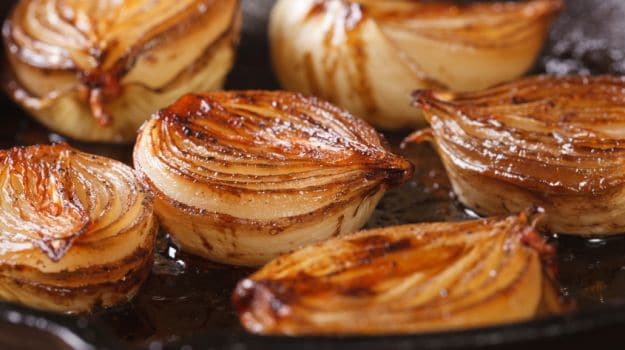
Nutritional Composition of Raw Onions
One cup of chopped onion contains approximately:
a) 64 calories
b) 15 grams of carbohydrate
c) 0 grams of fat
d) 3 grams of fiber
e) 2 grams of protein
f) 0 grams of cholesterol
g) 7 grams of sugar
h) 10% or more of the daily value for vitamin C, vitamin B-6 and manganese.
i) They also contain small amounts of calcium, iron, folate, magnesium, phosphorus and potassium and the antioxidants quercetin and sulfur.
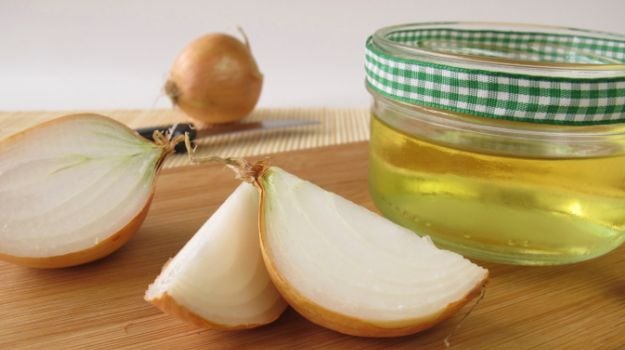
10 Magical Benefits of Raw Onions
1) Raw onion is known to lower the production of LDL (bad cholesterol) and keep your heart healthy.
2) The vitamin C (which remains intact while they are in the raw form) along with the phytochemicals present in onions helps build immunity.
3) Quercetin, a powerful compound found in onions, has been suggested to play a role in preventing cancer, especially stomach and colorectal cancers.
4) Chromium, also present in this root vegetable, may help regulate blood sugar.
5) A mixture of onion juice and honey (which helps make it less pungent) is said to be effective as a cure for fever, common cold, allergies, etc.
6) Keep a small piece of onion under the nostrils and inhale, to stop or slow down a nose bleed.
7) Folate in onions also helps with depression and aids sleep and appetite.
8) The vitamin C helps formation of collagen that is responsible for skin and hair health.
9) Antibacterial and anti-inflammatory properties of onions have been proven. One study also suggested that freshly chopped raw onions have these anti-bacterial properties, not chopped onion which has been allowed to sit for a day or two.
10) Chewing raw onions improve our oral health (though your breath may stink). They help eliminate bacteria that can lead to tooth decay and gum issues.
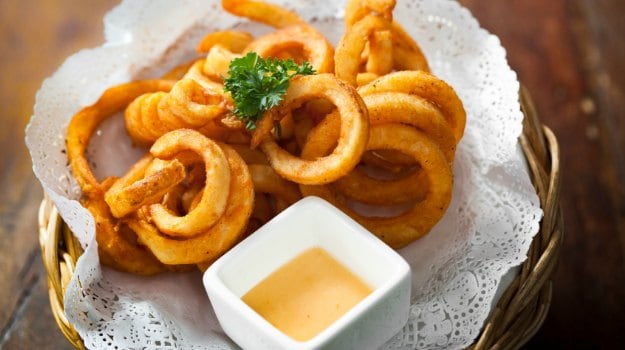
Did You Know?
The flavonoids in onion, which are responsible for many of the health benefits above, are usually more concentrated in the outer layers of the bulb. To get the maximum benefit, try to peel as little of the outer skin as possible. Over-peel and you can end up with unwanted loss of flavonoids. It is estimated that a red onion may lose about 20% of its quercetin and almost 75% of its anthocyanins if it is over-peeled.
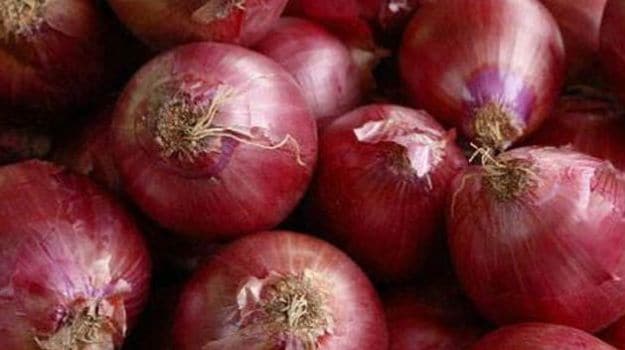
An estimated 105 billion pounds of onions are grown across the world every year and the vegetable is supposed to have been cultivated since 5000 years. They are very popular in some cuisines in India, Chinese, Mexican etc. You may hate chopping them because of the tears, but there are some quick tips to take care of that too. Love it or hate it, onions play a pivotal role in the food culture of our country. And given the health benefits above, it is no surprise.
[“source-ndtv”]



